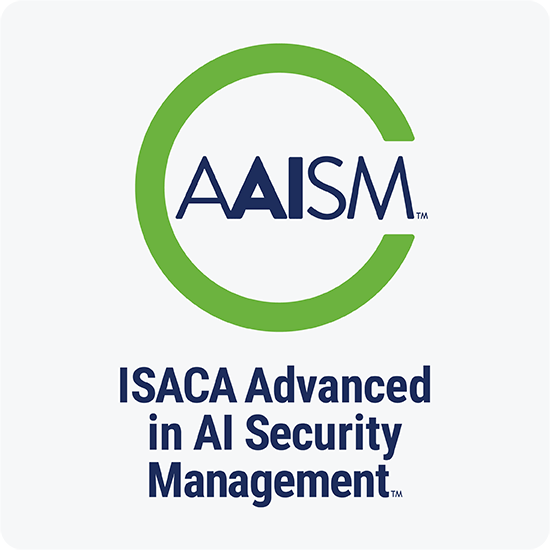



Security Operations Center (SOC) analysts are the modern-day Sherlock Holmes: digital consulting detectives.
They need to see each log file they are analyzing as a clue, every anomaly as a potential suspect, and of course the time is always running out. Success in solving a “case” requires strong technical skills in threat detection and a knack for clearly communicating cyber risks to business stakeholders.
In my decade and a half in cybersecurity, I've been in multiple roles, including SOC analyst, and have worked closely with analysts in other roles. To become a champion analyst, some core competencies have stood out: Grasp of cybersecurity fundamentals, hands-on expertise, sharp analytical thinking with fast decision-making, clear communication and a relentless drive to learn.
That’s a loaded list. So, how do you get started?
While some certifications aim to teach and validate these skills, ISACA’s Certified Cybersecurity Operations Analyst (CCOA) takes a unique approach with practical operational needs. This blog post dives into key competencies for SOC analysts and covers how CCOA addresses these areas.
Essential Technical Skills for SOC Analysts
Logs to insights: Logs are the heartbeat of security monitoring, providing invaluable insight into activities across digital infrastructure – who, what, when, where and how. Effective SOC analysts extract insights from logs coming out of firewalls, IDS/IPS, on-prem and cloud endpoints, and applications using open-source tools like Elasticsearch, Logstash, and Kibana (ELK stack).
Understanding adversarial behavior patterns: Effective threat hunting involves thinking like an attacker. Analysts must understand attackers' tactics, techniques and procedures (TTPs). Using open-source frameworks like MITRE ATT&CK, recognizing subtle variations in attacker methodologies – such as deviations in established processes or unexpected privilege escalations – allows analysts to proactively act.
Rapid incident containment: Every second counts during a cybersecurity incident. SOC analysts must decisively halt attacks to prevent lateral movement or data exfiltration. Proficiency in containment includes deploying endpoint isolation techniques, swiftly modifying firewall rules, and coordinating cross-team responses efficiently.
Effective communication and risk translation: Technical skills alone aren’t enough for an SOC analyst. Clearly translating complex cybersecurity issues into understandable business terms is a crucial skill. For example, instead of simply reporting a detected vulnerability in a web application, you might explain that this flaw could allow attackers to access – let’s say – 100 TB of sensitive customer data, potentially resulting in millions of dollars of regulatory fines and reputational damage. This makes the risk tangible and actionable for business leaders.
But What About AI?
Glad you asked. AI tools significantly enhance SOC analyst capabilities by automating routine log analysis and highlighting unusual activities. AI-powered analytics quickly sift through massive datasets, detect subtle anomalies, and flag potentially malicious activities, freeing analysts to focus on more complex threat evaluations and strategic decisions. In short: Leverage AI to become a better analyst.
What is ISACA’s CCOA Certification?
In February, ISACA introduced the Certified Cybersecurity Operations Analyst (CCOA) credential to address a recognized gap in the industry, focusing specifically on operational and practical skills required by security analysts. Within ISACA's broader certification ecosystem, which includes strategic and governance-oriented certifications like CISA, CISM, and CRISC, CCOA targets operational expertise for security.
The CCOA certification validates SOC analysts’ operational cybersecurity skills through practical, scenario-based assessments. The certification addresses five specific domains:
- Technology Essentials
- Cybersecurity Principles and Risk
- Adversarial Tactics, Techniques, and Procedures
- Incident Detection and Response
- Securing Assets
How the CCOA Certification Equips Analysts
Practical, performance-based training: In the CCOA exam, analysts undergo lab scenarios replicating real-world cyberattacks, challenging them to analyze logs swiftly and pinpoint attacker activities accurately. Through these labs, CCOA prepares, assesses and instills the speed and precision necessary for effective log analysis. It’s the second-best thing to real-world experience, and the best thing to get started.
Detailed examination of adversarial tactics: CCOA’s detailed coverage of adversarial tactics provides analysts with a deeper understanding of attacker methodologies. This knowledge equips analysts with the skills needed to proactively identify and respond to cyber threats.
An example of this in action: if an organization detects unusual use of remote services (such as RDP connections from unexpected locations), an SOC analyst trained in adversarial tactics can recognize this as a potential lateral movement technique (MITRE ATT&CK T1021). The analyst can then cross-reference related tactics, such as privilege escalation or credential access, to determine if the activity is part of a broader attack chain.
Incident response competency: The certification includes rigorous training in incident detection and response. Analysts demonstrate their ability to quickly assess and contain cyber incidents, effectively minimizing organizational risk. Analysts learn to follow established incident response frameworks, such as NIST SP 800-61, which guide them through the key stages: preparation, identification, containment, eradication, recovery and post-incident analysis.
Communication and risk management: CCOA addresses cybersecurity principles and risk management, teaching analysts to clearly communicate technical security issues in business terms. This ensures analysts can effectively convey the impact of security incidents on business operations, compliance and financial health.
Wrapping Up the Case
Sherlock Holmes has good intuition but he never relies solely on it. SOC analysts must continuously sharpen their investigative skills, adopt the latest tools-trends-and-techniques and refine their communication strategies.
The cybersecurity landscape is dynamic, requiring constant adaptation and proactive learning. ISACA's CCOA certification equips analysts to face these challenges head-on, ensuring they're not just chasing after incidents but staying ahead of threats.
Author’s note: The views, opinions, and conclusions expressed in this post are solely those of the author and do not reflect the views or policies of any current or former employer.
About the author: Aditya Patel is a cybersecurity leader and architect (currently at AWS) with 15+ years of experience in information security, cloud architecture, and machine learning, specializing in secure, scalable solutions with a focus on AI safety, LLM security, and compliance. With a master’s in cybersecurity from Johns Hopkins and a bachelor's in computer science from India, he has contributed to security research and shares insights through public speaking and his blog (secwale.com). LinkedIn: https://www.linkedin.com/in/adityarpatel/
